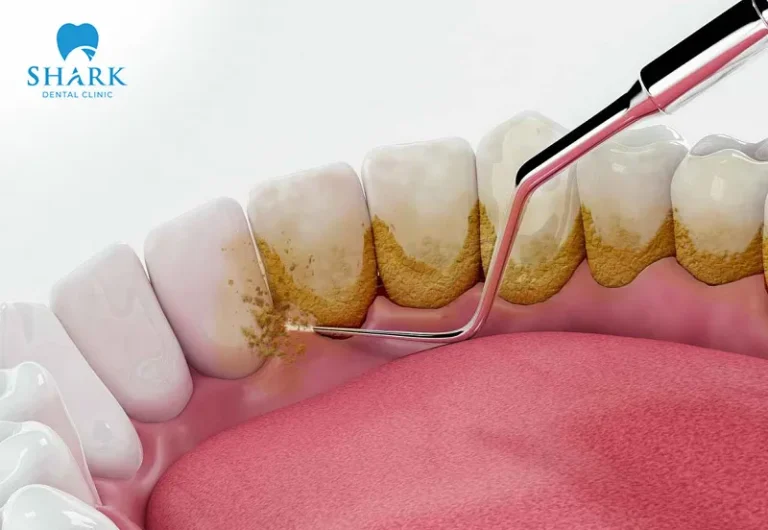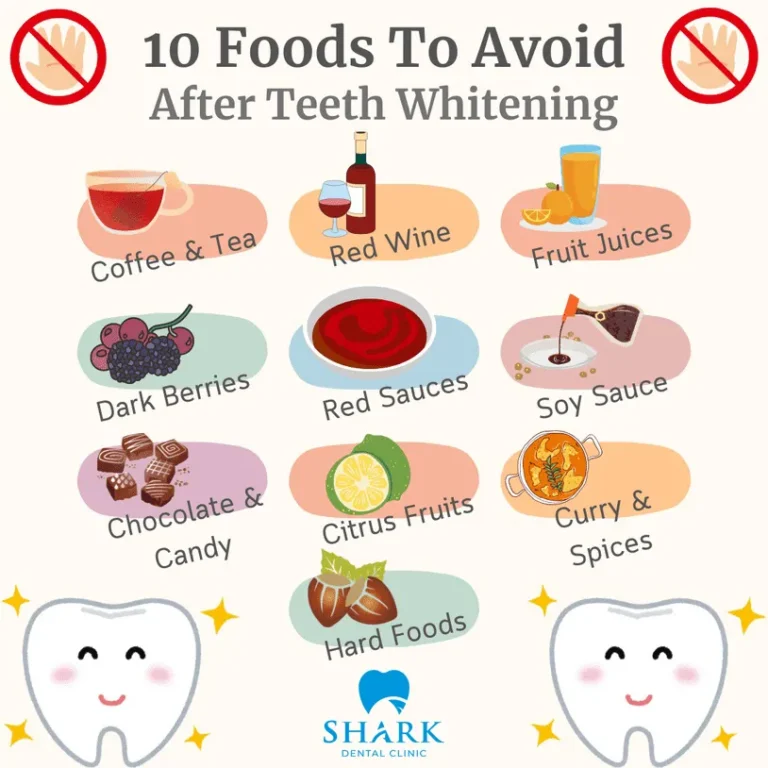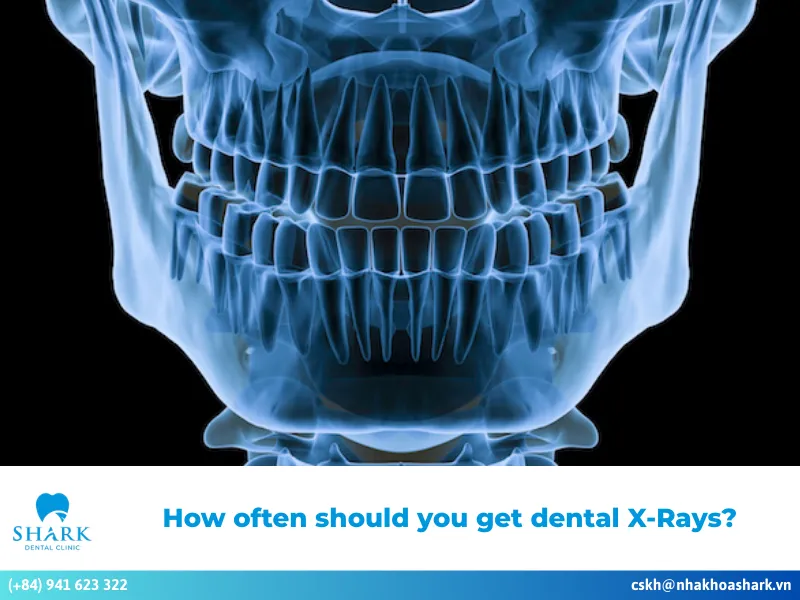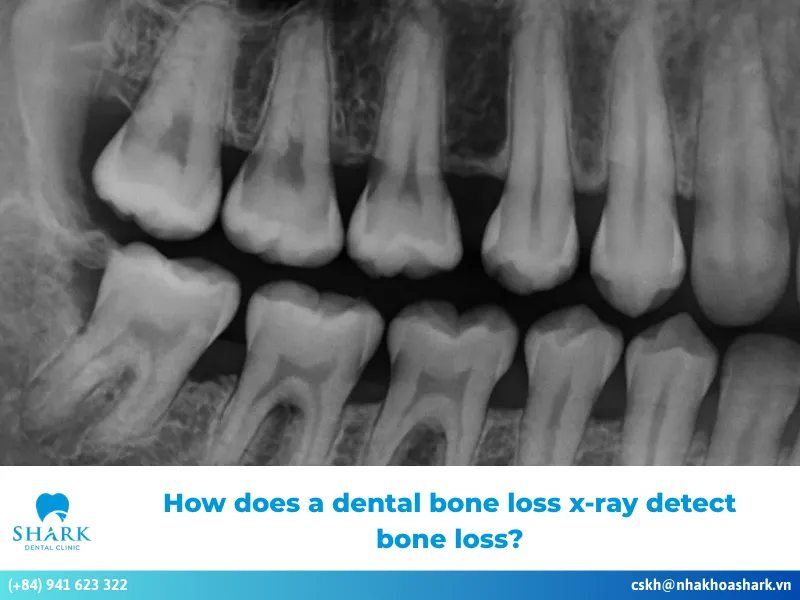Teeth scaling is a dental procedure that removes plaque and tartar buildup, helping to clean the tooth surface and prevent bacterial growth and other complications. Many people wonder what to eat and how to care for their teeth after scaling. Here’s some advice from Shark Dental Clinic specialists on the best diet and care routine to follow for optimal oral health.
What happens after scaling?
Understanding the transition of your teeth scaling before and after the procedure is essential for proper recovery. Many patients often ask if scaling whiten teeth during the process; while it doesn’t chemically bleach the enamel, it does restore your natural brightness by removing yellow tartar and surface stains. Although teeth scaling is a straightforward process, it can temporarily affect your teeth and gums, leading to some common symptoms:
- Tooth Pain and Sensitivity: The scaling process can impact the tooth structure slightly, resulting in discomfort or sensitivity.
- Gum Bleeding: This is a common occurrence after scaling, caused by the mechanical action on the gum surface, which can lead to irritation. In cases of excessive bleeding, the teeth may be more affected.
- Increased Sensitivity of Teeth and Gums: Removing tartar exposes the enamel and gum surfaces, making them highly sensitive to hot and cold temperatures, which can make eating more challenging.

After scaling teeth what to eat in the first 24-48 hours
Specialist dentists recommend exercising caution in the first 24 to 48 hours following scaling, as both teeth and gums are still sensitive. Paying attention to proper care and nutrition during this time can aid recovery, minimize discomfort, and protect oral health.
Soft Foods
Since gums are extremely sensitive after scaling, it’s advisable to consume soft foods. Options like porridge, soup, stews, soft tofu, mashed potatoes, and smoothies are easy to chew and digest, reducing trauma to the gums and allowing for more comfortable eating.
Fresh Vegetables
Including fresh vegetables in your diet after scaling is crucial for nutrition. Vegetables such as broccoli, cabbage, cucumber, and carrots are rich in vitamin C and antioxidants. The natural fiber in these vegetables stimulates saliva production, helps maintain oral moisture, neutralizes acids, and cleanses harmful bacteria from the mouth.

Fruits
Dentists also recommend eating fruits like avocados, ripe mangoes, bananas, apples, and sweet oranges. These fruits are packed with vitamins C and E, as well as antioxidants. Additionally, they are easy to chew, exert minimal pressure on the teeth, provide energy, and support faster recovery.
Stay Hydrated
Drinking plenty of water after a teeth scaling procedure helps soothe the oral cavity and reduces dryness or irritation. It also rinses away bacteria and leftover food particles between your teeth, decreasing the risk of plaque buildup. Specialists highly recommend drinking water after scaling as it effectively supports overall oral health.
Milk and Dairy Products
Milk is an excellent source of nutrition that aids recovery and strengthens oral health following scaling. Dairy products such as fresh milk, unsweetened yogurt, and soft cheese can be beneficial during this period. Rich in nutrients, they provide calcium and vitamin D, which promote the remineralization of tooth enamel and help support stronger teeth. Additionally, dairy products help maintain oral moisture and stimulate natural saliva production, making them suitable for sensitive teeth.

After scaling teeth what to eat? After a teeth scaling procedure, you should eat soft and easily digestible foods such as porridge, soup, mashed potatoes, soft fruits, and fiber-rich vegetables (like leafy greens and carrots) to help promote gum recovery.
Foods to avoid for the first week
While focusing on foods that promote healing, it’s also important to avoid items that might irritate your teeth or hinder the recovery process, such as:
- Extremely hot or cold foods: These can cause tooth sensitivity and discomfort.
- Sugary foods: High sugar intake can encourage bacterial growth and plaque formation.
- Hard, chewy, or dry foods: These can damage the tooth enamel, which is temporarily sensitive after scaling.
- Acidic foods: Foods containing acids can erode enamel, increase sensitivity, and contribute to tooth discoloration.
- Spicy and heavily seasoned foods: These can irritate gum tissue, causing burning sensations and discomfort.

How long should you abstain from eating after teeth scaling?
Typically, it’s recommended to wait 1–2 hours after scaling before eating to allow your teeth to stabilize. However, you should avoid hard, chewy, hot or cold foods, and items high in sugar for 1–2 weeks. Once your enamel has stabilized and your gums and teeth are no longer overly sensitive, you can return to your normal diet and daily activities.
Following your dentist’s care instructions and nutritional guidance will ensure the best recovery results. This guide provides clear answers to common questions about post-scaling nutrition, helping patients understand proper care and dietary restrictions. For further advice, feel free to contact Shark Dental Clinic to receive professional guidance from our dental specialists.
>>> See more: How to remove hard plaque from dentures









